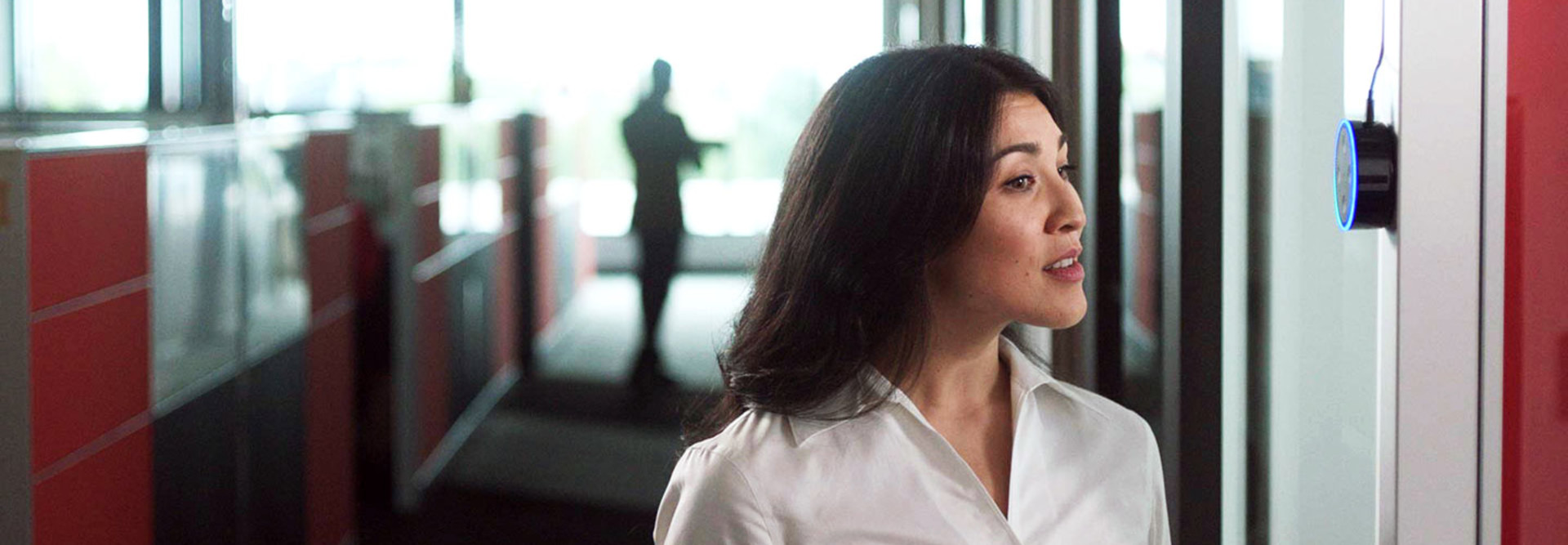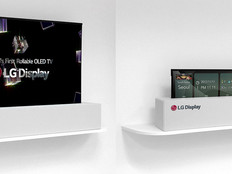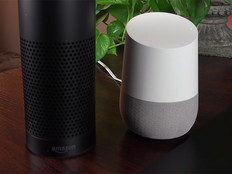CES: AI Assistants Are Popular, but Face Hurdles to Enterprise Adoption
“Alexa, will AI assistants take over the office?”
Probably not anytime soon.
One of the major themes at CES 2018 this week was the competition between Google’s Assistant and Amazon’s Alexa as the companies vie to get their artificial intelligence assistants into more and more devices.
While CES proved that there is a going to be a booming market for consumer electronics embedded into these devices, the companies face obstacles to grab market share in the business world. They will need to ensure that their tools can be integrated with enterprise IT systems, analysts say, and must also overcome privacy and data security concerns.
If and when AI assistants do gain more purchase in offices, they will likely be used in communal spaces and embedded into devices such as printers, projectors or collaboration tools, according to analysts.
SIGN UP: Get more news from the BizTech newsletter in your inbox every two weeks!
Alexa, Google Battle for Dominance
At CES, tech vendors of all stripes are integrating Google’s Assistant into their gadgets. These integrations (so far) include LG’s ThinQ speakers, its latest 4K OLED and Super UHD LCD TVs, Hisense’s 2018 TV models, lock maker Schlage’s Sense Smart Deadbolt door lock, a smart light switch from GE and even automotive infotainment systems from Panasonic. Google also announced Jan. 8 that it is partnering with Sony, Samsung-owned JBL, LG and Lenovo on Assistant-infused speakers with touchscreen displays in a new platform called smart display, CNET reports.
Alexa made itself known at CES, though. Amazon built off its late November announcement of Alexa for Business, an initiative aimed at bringing its voice-based, Alexa artificial intelligence platform, via its Echo speakers, into office settings.
Alexa will likely be on office desks around the world thanks to partnerships Amazon is striking with PC makers. Alexa will soon show up on Windows PCs, creating new competition for Microsoft’s Cortana voice assistant, which comes standard with Windows 10, GeekWire reports.
Hardware makers HP, ASUS, Acer and others plan to bring Alexa to their computers this year, the publication adds (The Verge says Lenovo is also on board). “This is a big step toward making Alexa available wherever customers might need her,” Steve Rabuchin, vice president, Amazon Alexa, says in an Acer statement.
Alexa will be coming to select Acer Aspire, Spin, Switch and Swift notebooks, as well as Aspire all-in-one PCs this quarter. Alexa will initially be available in the U.S. via an update through Acer Care Center, while wider support is expected to be rolled out in mid-2018.
Lenovo’s ThinkPad X1 Carbon laptop and X1 Yoga convertible will support Alexa, according to The Verge, and will also be in Asus’ ZenBook and VivoBook lineup, and the HP Pavilion Wave, Engadget reports.
How Will AI Assistants Be Used in Offices?
AI assistants are being embedded in all manner of consumer devices, but so far have not migrated to many enterprise software or hardware products, says IDC analyst David Schubmehl, who specializes in AI. That will likely change over the next 12 to 24 months, he says.
With Alexa for Business, Amazon envisions that Alexa will help workers easily start conference calls and videoconferences, book conference rooms, find directions around the office, order office supplies, find open conference rooms and more. New applications, or Alexa “skills,” will allow users to dim office lights, lower blinds and start a project in a conference room by saying, “Alexa, start the meeting.” The Wall Street Journal reports that “workers will be able to tell a device near a printer to send a notification to refill it with paper.”
Schubmehl and Gartner analyst Werner Goertz, who also covers AI systems, say that AI assistants will likely be used in communal areas and group collaboration devices. “The simplest ones are the shared spaces in your mailroom, conference room or reception desk,” Schubmehl says.
Goertz agrees and says the goal will be to have such devices control other aspects of an office or a meeting. “You will be able to do things like use voice commands to shut the door lock or manage the [air conditioning] or manage the lighting,” he says.
In the future, once engaged, Schubmehl says that AI assistants may listen in on conversations and automatically schedule future meetings based on your intention to set one up. That is unlikely to happen in the next year though, he says.
However, that possibility also indicates one of the main hurdles AI assistants face to gaining adoption in workplaces: user privacy. Goertz emphasizes that the assistants only start listening when users say pre-authorized “trigger” words. However, he acknowledges that many CIOs are wary of putting these devices into their offices.
“That is one example of how the mindset of IT buyers and CIOs is different from the mindset of the consumer,” Goertz says. CIOs will need to potentially overcome legal and regulatory concerns to add AI assistants, especially if they work in settings such as hospitals or legal offices and must deal with patient privacy regulations or client confidentiality.
In addition to appearing in collaboration tools in offices, Goertz thinks that AI assistants could make sense in hospitality, especially if they are placed in hotel rooms to control smart lighting or blinds, for example.
AI assistants will need to overcome security concerns around authentication, Goertz says, which Amazon is addressing via the open protocol OAuth. The assistants will need to be integrated with Microsoft Exchange services, which Amazon is doing. And the assistants will need to be integrated into enterprise applications and databases in order to achieve their true potential, he says.
Microsoft, Cisco Also Play in AI
Lost in all of this has been Microsoft’s Cortana AI assistant. However, Microsoft is not giving up on Cortana, according to ZDNet, and made several partnership announcements at CES. It partnered with Johnson Controls on a smart thermostat.
Others include a partnership with AllWinner to enable developers to create voice-first Internet of Things devices, ZDNet reports, and partnerships with reference design vendors Synaptics and TONLY, which make far-field voice processing and devices that use Skype, respectively.
And Qualcomm and Microsoft are enabling partners to build Mesh Networking and Smart Audio products that bring Cortana value to customers, through reference designs on the Qualcomm Smart Audio Platform and Qualcomm Mesh Networking Platform.
“With the support of both existing and new partnerships, we’re continuing to bring Cortana to even more places in the office, at home and on the go,” Jordi Ribas, Microsoft’s corporate vice president of AI products, says in a company blog post. “Regardless of the device or context, our goal is to put Cortana everywhere you need assistance, whether that is on your PC, phone, Xbox, mixed reality headsets, intelligent home speakers, thermostats and even more in the future. You’ll continue to see Cortana integrated on your favorite devices and services throughout the year to come.”
Other companies are also bringing AI to collaboration tools. Last year Cisco Systems made a $125 million acquisition of AI company MindMeld. Cisco wants to incorporate MindMeld’s AI platform into its collaboration products, because the tech allows users to build intelligent and human-like conversational interfaces for any application or device.
“They have to make a defensive move in order to protect their current assets in IP communications,” Goertz says. Collaboration tools are “a market that could be disrupted” by AI assistants, he says.









